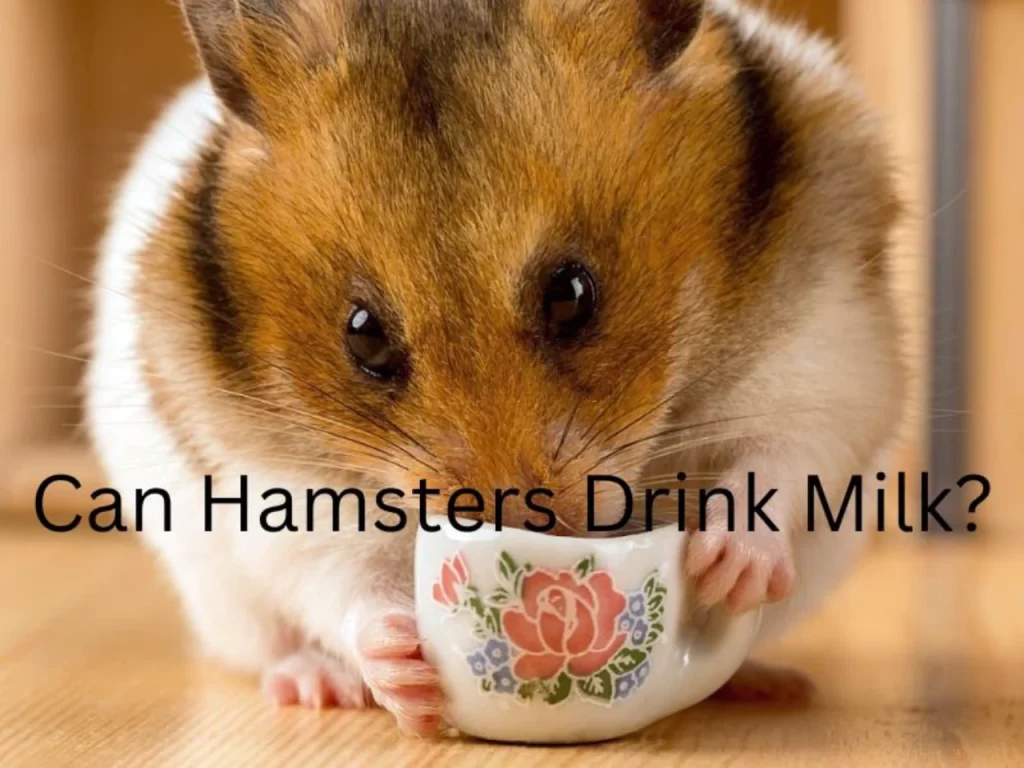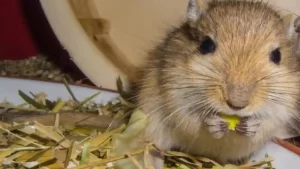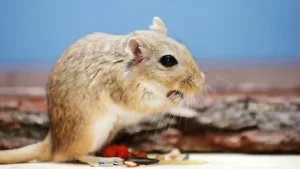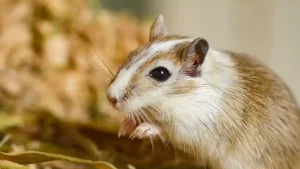The simple answer to this question is no, hamsters should not drink milk. Although some people may think it’s okay to give their hamster cow’s milk, there are a few reasons why it’s not a good idea.
Firstly, cow’s milk is designed for baby calves and does not contain the correct balance of nutrients for your pet hamster.
Hamsters need specific levels of certain vitamins and minerals that regular dairy milk cannot provide. Also, cows’ milk can upset a hamster’s digestive system leading to diarrhea or an upset stomach.
Finally, cows’ milk contains lactose which causes gas in many animals including humans so giving your pet hamster too much will cause them significant discomfort and could even lead to serious medical issues.
So, just as a precaution it is best not to give your hamster cows’ milk, instead opt for water or specially formulated hamster milk that your pet store should stock. Hamster milk will provide them with the nutrients they need and won’t upset their delicate stomachs.
The safest option is to provide them with specially designed hamster milk which can be purchased from most pet stores. This way you can ensure that your furry friend gets all of the vitamins and minerals they need to stay healthy and happy!
Do Hamsters Drink Milk?
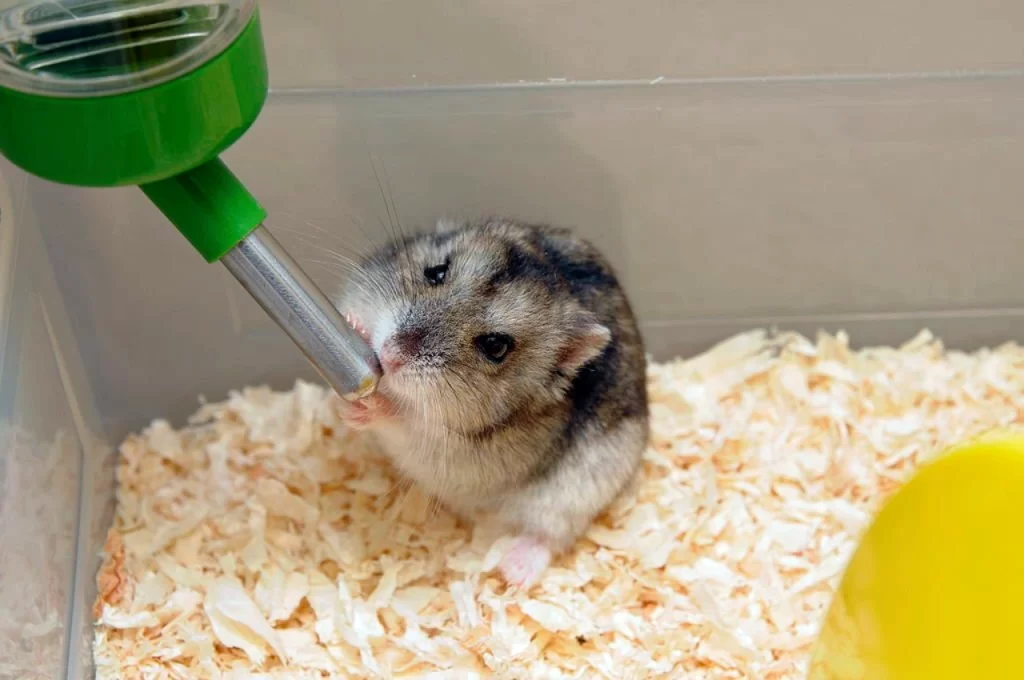
Hamsters are small, furry animals that make wonderful pets due to their playful and outgoing personalities. They’re often seen with a bit of food in their cheeks as they scavenge around for treats. But when it comes to drinking milk, should hamsters be consuming it?
The answer is no, hamsters should not drink milk. Milk is not part of a hamster’s natural diet and can cause digestive issues or even lead to lactose intolerance over time.
While some people might feel that giving a few drops of milk as an occasional treat won’t hurt, the reality is that cow’s milk isn’t designed for hamster consumption. It can cause health problems such as bloating, diarrhea, and vomiting if consumed regularly.
Instead of giving your hamster milk, you can provide them with other alternatives such as water, fresh fruit juice diluted with water, and sugar-free baby cereal watered down to a milky consistency.
These alternative fluids are healthier for your pet and provide necessary nutrients like vitamins and minerals.
What may be the risk of feeding milk to hamsters?
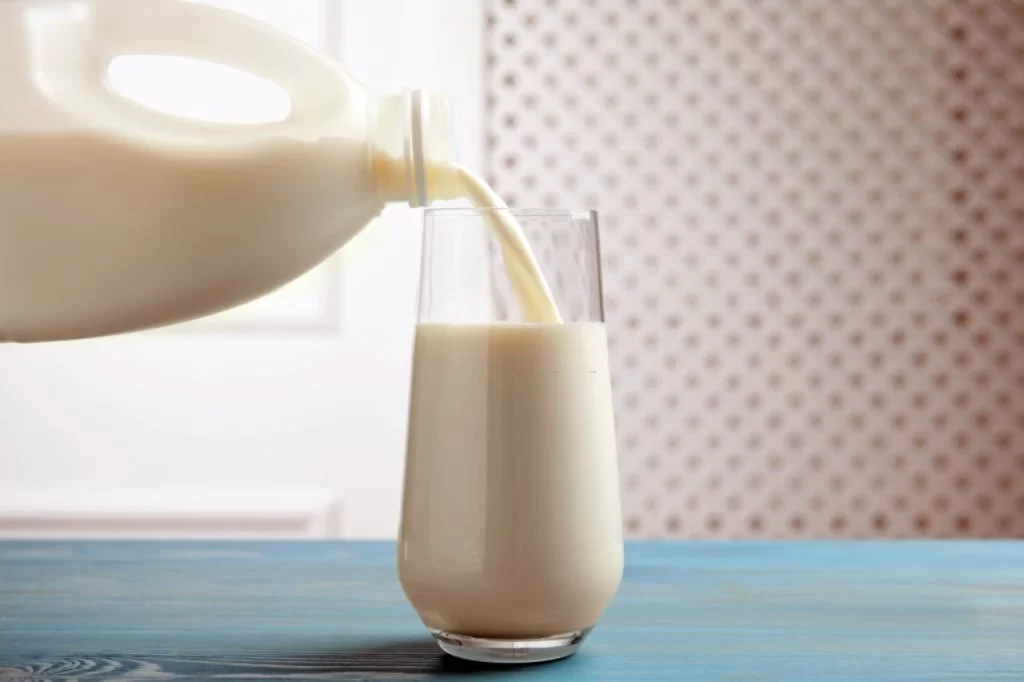
Hamsters do not typically consume milk in the wild, and some research suggests that cows’ milk does not provide any nutritional benefits to them. It can potentially cause digestive issues like diarrhea and vomiting.
While many hamster owners have given their pets small amounts of milk as a treat without any detectable side effects, it is generally considered unsafe for these animals and should be avoided unless otherwise suggested by a veterinarian.
Additionally, lactose intolerance may be more common in Syrian hamsters than in other breeds. If your hamster shows signs of an upset stomach after drinking milk or eating dairy products, it may need to stay away from lactose entirely.
It is important to remember that even if hamsters do not get sick right away from drinking milk, it is still not a recommended food for them.
In general, when it comes to providing healthy nutrition for your hamster, the best option is to stick with specially formulated pellets and fresh vegetables. This will ensure that your pet’s diet provides all the essential nutrients they need without any of the risks associated with dairy products.
What Are The sign of illness in hamsters?
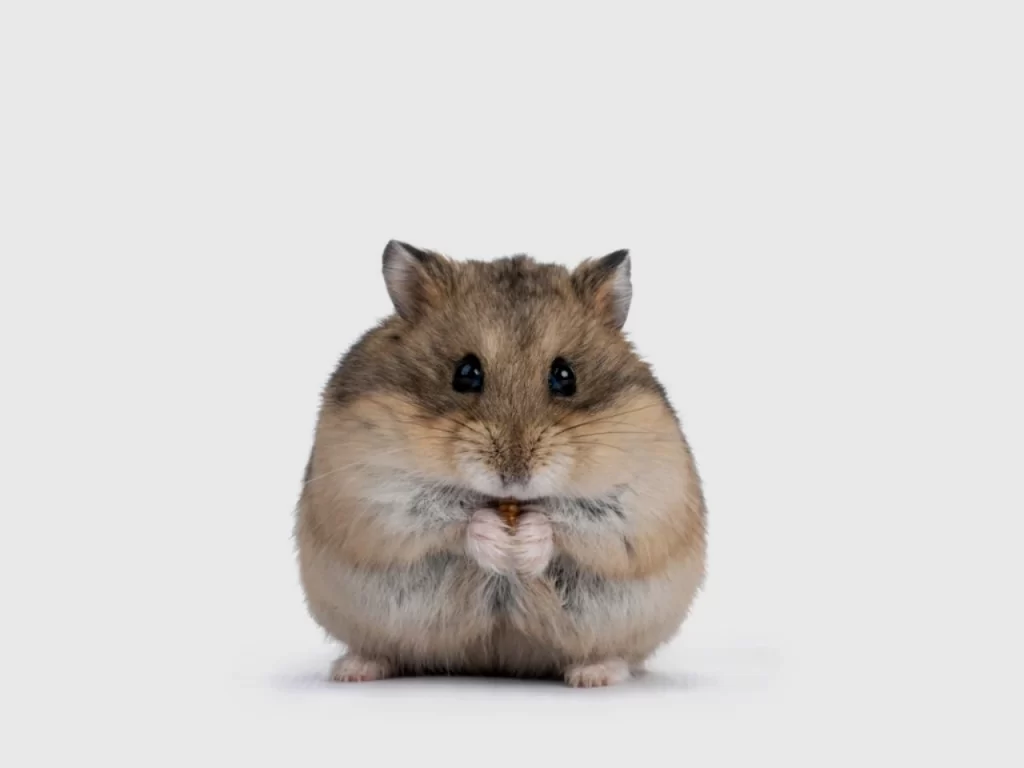
Hamsters are prone to a variety of illnesses and diseases, some of which can be prevented through proper nutrition and care.
Some common signs that may indicate illness in hamsters include changes in eating habits or weight, changes in activity level, lethargy or sleeping more than usual, changes in appearance such as fur loss or bald patches, discharge from the eyes, nose or anus, breathing problems such as wheezing or rapid breathing, diarrhea, constipation and unusual lumps on the body.
If you notice any of these signs in your hamster it is important to take them to an experienced veterinarian for diagnosis and treatment. In addition to these signs of illness, it is also important to pay attention to what your hamster is not doing, such as drinking its usual amount of water or eating its normal food.
By monitoring your hamster’s behavior and health closely you can catch any potential problems early on and get the help they need.
Although Hamsters do not generally drink milk, it is important to provide plenty of clean drinking water for them at all times.
If you notice that your hamster is not drinking enough water it could be a sign of illness or dehydration so be sure to contact your veterinarian right away.
Keeping your pet healthy and happy is important to ensure their longevity and well-being, so always pay close attention to signs of illness in your furry friend.
Also Read: Can Hamsters Eat Mealworms?
Can baby hamsters have milk?
The answer is no. Hamsters are lactose intolerant and milk isn’t part of their natural diet. It can cause digestive problems and may even lead to serious health issues.
If you want to give your hamster a treat, provide them with some fresh vegetables or fruits instead. Be sure to choose only the safe ones for hamsters like apples, peas, carrots, etc.
These treats should be given in moderation and not form the bulk of their regular diet. The best food for hamsters would be a commercial dry mix specifically formulated for them, as it contains all the necessary nutrients they need to stay healthy.
How Can You Provide Hydration to Your Hamster?
It is important to provide your hamster with adequate hydration. Fresh, clean water should be available at all times and changed regularly.
You can use a water bottle designed specifically for small animals or you can use a shallow bowl. When using a bowl, make sure it’s shallow enough that your hamster won’t accidentally fall in when drinking from it.
If you opt for the water bottle, watch out for any signs of leaking or blockages as these can lead to dehydration.
Additionally, you can mist your hamster’s cage 1-2 times per week with fresh water to help keep them hydrated.
However, never leave standing water as this can lead to bacterial growth which could cause a variety of health issues.
Proper hydration is key to a healthy hamster and should be taken seriously. With the right supplies and regular maintenance, you can easily provide your pet with fresh water for them to stay hydrated.
Milk for hamsters
Milk is not a recommended drink as it can cause them to become ill. Hamsters should be given water which is essential for their health and well-being.
Hamsters can benefit from dairy products, but milk should not be the primary source. Cheese, yogurt, or other dairy-based treats can be given as occasional snacks in very small amounts.
The high lactose content in milk can result in digestive distress and diarrhea if hamsters consume too much of it.
If your hamster does consume milk, it may suffer from symptoms such as bloating, gas, vomiting, and even dehydration.
Therefore, using milk as a treat should never be done regularly; instead, use other treats like fresh vegetables or fruits that are safe for hamsters.
Also Read: Can Hamsters Eat Popcorn? A Complete Feeding Guide Of Popcorn For Hamsters!!!
Why can’t a hamster drink milk?
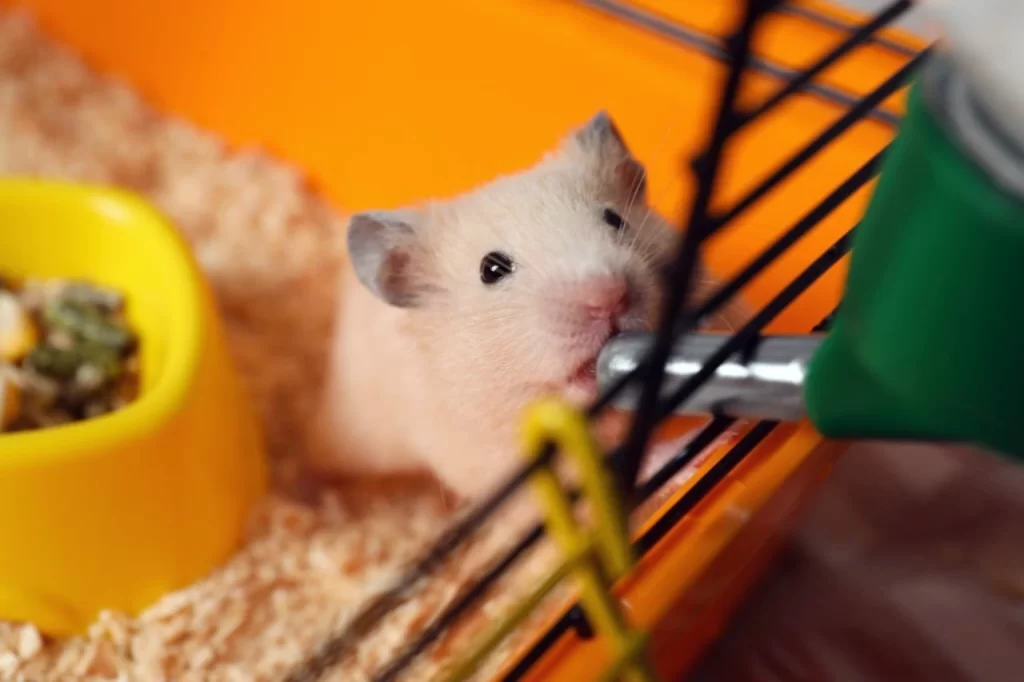
Although it may be tempting to give hamster milk, it is not a good idea. Milk does not provide any nutritional benefits to a hamster because its digestive systems are not designed for dairy products.
The lactose in cow’s milk can cause digestive upset and diarrhea in small animals like hamsters, as they do not have the enzymes necessary to break down lactose into simple sugars.
Cow’s milk is also very high in fat which can lead to obesity and other health problems if consumed regularly. Even if your hamster seems to enjoy drinking cow’s milk, it is best avoided due to the risks associated with its consumption.
Rather than giving your pet hamster cow’s milk, provide them with fresh water in a shallow bowl daily. Water is essential for hamsters as it helps to keep their fur and skin healthy, and also assists in the digestion of food.
If you want to offer your hamster more variety in its beverage diet, try offering occasional treats such as diluted fruit juice or drops of honey-flavored water. These liquids will not cause any health problems like cow’s milk could and they can make a tasty treat for your pet!
Overall, hamsters should never be given cow’s milk to drink as it can lead to digestive issues and other health problems if consumed regularly.
Stick to providing your pet with fresh water regularly and only give sugary liquids as occasional treats. This will help keep your hamster healthy and happy!
Can hamsters drink any type of milk?
No, it is not recommended to give hamsters any type of milk. Milk can cause digestive problems in hamsters and other small animals because their bodies do not produce enough lactase, the enzyme needed to digest lactose (the sugar found in milk).
Milk can also cause dehydration due to its high water content. If you want to provide your hamster with a calcium supplement, try providing them with a tiny piece of cheese as an alternative to milk.
Additionally, there are fortified pet foods available with added vitamins and minerals for small pets such as hamsters. These are generally considered much safer than giving them straight dairy products like milk.
Ultimately, if you’re considering offering your hamster any type of dairy product, consult your veterinarian first to ensure it is safe for your pet.
When should hamsters stop drinking milk?
Hamsters can drink milk up until the age of 4-6 weeks, after which they should no longer consume it. Milk consumption should stop at this point because their digestive systems cannot process large amounts of lactose and nutrients found in dairy products.
If a hamster is still drinking milk, even after 6 weeks, owners need to switch them over to other fluids such as water or specially formulated milk replacements for small animals.
In addition, owners should ensure that the milk they are providing is pasteurized and not raw; this will help reduce the risk of bacteria and illnesses caused by consuming unpasteurized milk products.
It’s important to note that pasteurized dairy products can still contain small amounts of lactose, so if you’re unsure whether or not your hamster can tolerate it, you should consult a veterinarian for advice.
What can hamsters drink?
Hamsters are generally considered to be carnivores, meaning that they should primarily be fed a diet of high-quality protein sources such as insects, eggs, and meat. However, hamsters can also enjoy occasional treats like fruits, vegetables, and cereals.
Although milk is not an ideal drink for hamsters, they can technically consume it in very small amounts. Milk should never replace other important aspects of their diet, however; instead, it should just be used as an occasional treat.
If you do decide to feed your hamster milk occasionally, make sure it is pasteurized and unsweetened. It’s best to avoid cow’s milk altogether as this contains lactose which many hamsters are unable to digest properly.
Other dairy products like cheese or yogurt can also be consumed in moderation. If your hamster has access to fresh, clean water at all times then this should be the primary beverage of choice.
Milk is not necessary for their diet but it can act as an occasional treat if done so in moderation. It’s important to remember that every animal’s dietary needs are different, so it’s best to talk to a veterinarian or pet nutritionist before introducing new foods into your hamster’s diet.
Frequently Asked Questions(FAQs):
Can hamsters drink juice?
No, it is not recommended to give hamster juice as it is high in sugar and can cause health problems. Water should be their primary source of hydration and fresh vegetables can help provide additional moisture.
Alternatively, you could offer them a small bowl of plain yogurt or cottage cheese once a week as an occasional treat. It’s also important to Note that these treats should only be offered in very small amounts as too much dairy can result in digestive issues for your furry friend.
Can hamsters drink almond milk?
Hamsters can safely drink almond milk. Almond milk is a good alternative to cow’s milk, as it contains significantly fewer calories and saturated fats compared to regular cow’s milk.
However, the consumption of almond milk should be limited due to its high phosphorus content, which can lead to bladder stones in hamsters if they are constantly supplemented with high-phosphorus foods.
It is best to provide small amounts of almond milk occasionally as a treat for your pet hamster. Be sure to monitor their water intake, as dehydration can occur quickly in these small animals.
Additionally, make sure that your hamster does not become overweight from consuming too many treats. When providing almond milk as a treat, it is important to do so slowly and cautiously to avoid potential health complications.
What can hamsters drink besides water?
Hamsters need a lot of water to stay hydrated and healthy, but that doesn’t mean they can’t enjoy other drinks.
There are plenty of beverages that can be enjoyed by hamsters in moderation. As long as the beverage does not contain any added sugar or artificial sweeteners, it is generally safe for your hamster to drink.
Some popular options include unsweetened apple juice, coconut water, skim milk, and vegetable juices like carrot and celery juice.
While some owners may think it’s okay for their hamsters to drink cow’s milk, this can cause digestive problems for hamsters. Therefore, it is best to avoid giving them cow’s milk altogether. Instead, consider offering an alternative such as unsweetened almond milk or a fortified soy beverage.
Final Thoughts:
No, hamsters should not drink milk. While some sources may say that it is safe for hamsters to consume milk in small amounts, it is generally not recommended.
Milk can be hard for the digestive system of a hamster to process and could potentially lead to health issues such as diarrhea or bloating.
It is better to provide water as the primary source of hydration for your Hamster. Other treats like yogurt can sometimes be given in moderation but should never replace water as the main source of hydration. Always consult with your vet before introducing any new food into your pet’s diet.

